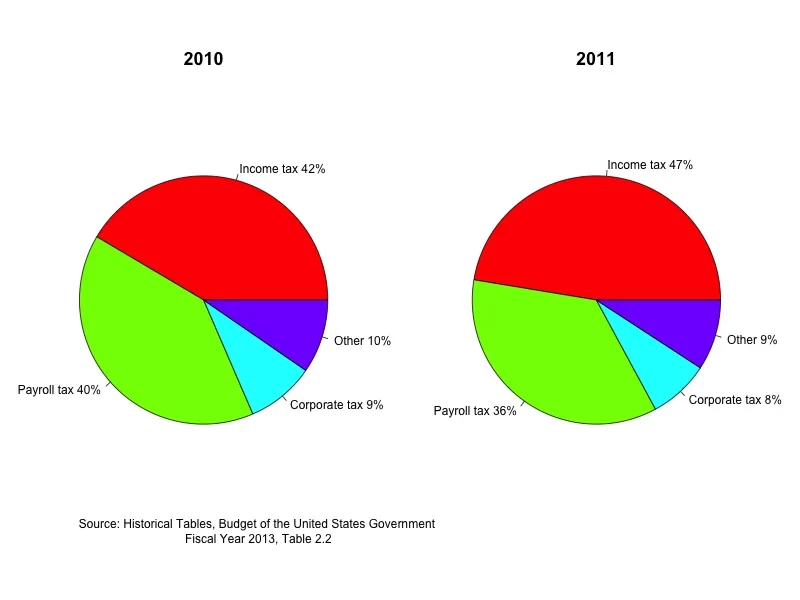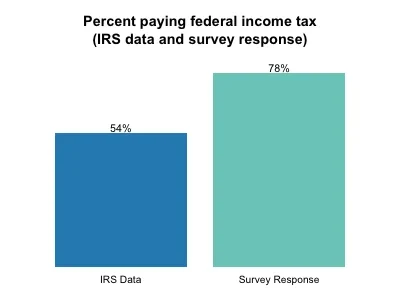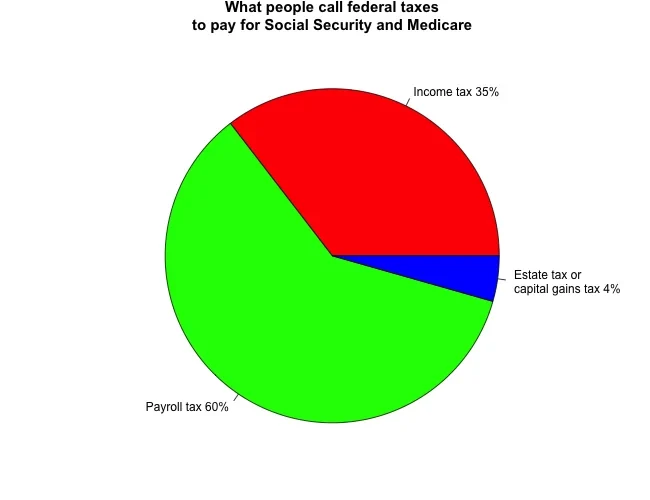When Mitt Romney’s 47% comments came to light, many were surprised that Romney’s claim that 47% of households do not pay income taxes is, in fact, true.
To many people, this is outrageous. Why should they be paying the federal taxes they do while so many fellow citizens get a free ride?
What’s going on, of course, is a disjuncture between the technical and ordinary usage of the term “income tax.” Technically, the income tax is a progressive tax on income that does not include the “payroll taxes” paid to support Social Security and Medicare. In ordinary usage, however, these payroll taxes are often considered federal income taxes – after all, on April 15, payroll and income taxes are rolled into the bottom line owed to the federal government.
The political importance of this distinction is that when politicians talk about the income tax, many Americans may think they are describing all federal taxes, and get a distorted picture of tax burdens. Yes, the income tax is paid only by about half of U.S. households, but statements about the income tax miss a huge part of the federal tax story. The payroll tax is paid by virtually all employed people and, in fact, 62% of tax filers pay more in payroll taxes than in income taxes. In aggregate the payroll tax accounts for a huge proportion of federal revenue, as Figure 1 shows. And the two taxes differ starkly: the income tax rate is higher on higher income levels while the payroll tax is a flat rate that applies only to income below $110,100.
Sources of Federal Government Revenue, 2010-2011

It is therefore interesting to get a handle on what Americans perceive when they hear “income tax.” The most recent YouGov/Economist poll asked, “Do you pay federal income taxes?” Seventy-eight percent said they do. Given that about 54 percent of households pay federal income tax that suggests roughly 24 percent of respondents report that they pay federal income taxes, but do not.

To assess if this overreporting on income taxes occurs because people consider payroll taxes as income taxes, we asked, “The federal government taxes people specifically to pay for Social Security and Medicare. What is this tax called?” and provided four options (capital gains tax, estate tax, income tax and payroll tax).

Sixty percent correctly identified the tax as the payroll tax, but 35 percent incorrectly identified it as the income tax. So even after being prompted about the differences in types of taxes, one-third of Americans appear to (not unreasonably) consider payroll taxes as income taxes.
What this means is that there is important political slippage between the tax policy debate in Washington and the way it is heard by many Americans. For Romney, this slippage is convenient as discussing income taxes as if they were all or even a majority of federal taxes paints the current tax system in a particularly unfavorable light.
Convenient is not correct, however. Everyone who discusses taxes should report the full context on taxes so that Americans working with common sense views of income taxes are not misled.









